#ruo
Text
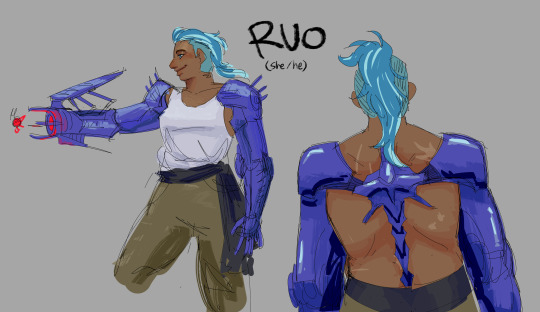
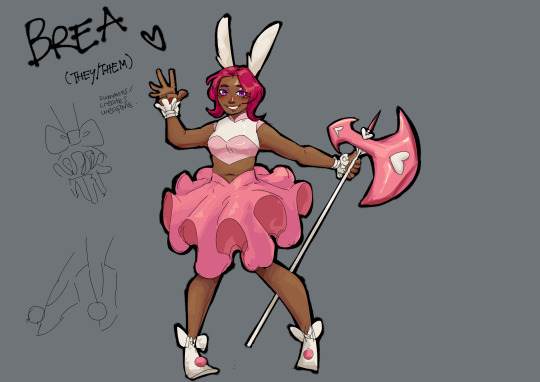
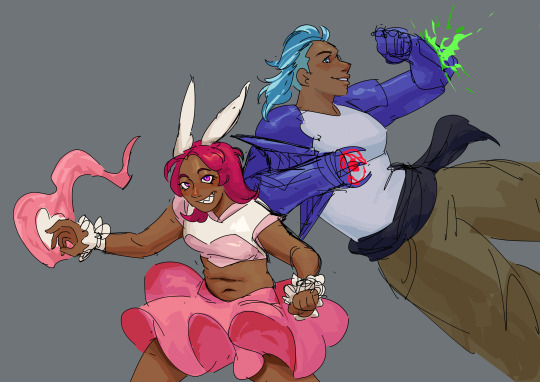
magical girl ocs ! <3
#new rat ocs!!!! this hot pink bitch named breakfast and a mecha butch magical girl#art#illustration#digital art#rat ocs#character design#magical girl#magical girls#brea#ruo
68 notes
·
View notes
Text
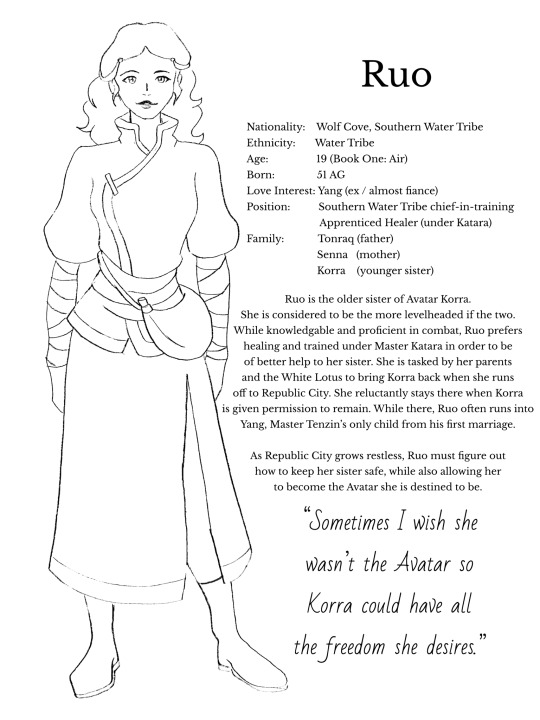
Not @objectivemistress dragging me back into my Makorra feels and I had to make a Legend of Korra oc. 😩
Things that are different in this AU in Book 1 alone:
Obviously, Korra has an older sister and thus would not be so isolated away from people her own age so Korra will actually have friends that are referenced and discussed instead of Bolin and Mako seemingly being her first friends ever.
Tenzin was married before Pema and has a son named Yang. His first wife was the daughter of Ty Lee and Lin’s best friend. The breakdown of Tenzin and Lin’s relationship is because of his remarriage to Pema after his first wife’s death rather than a failed romance. This also allows Aang the chance to hold one of his grandchildren.
Yang is not Korra’s air bending master as they want an actual adult to train her and Korra does not like Yang because of the end of his relationship with Ruo.
Korra will attend school and become more integrated within the community of Republic City.
The Red Lotus will actually be overarching villains with Amon being a sect of the Red Lotus.
Asami will actuall have a character arc where she is an Equalist who has a change of heart but she and her dad are discovered before she can come clean to Mako, which is why they break up. She does help the others at the end of book one.
While there will be a love triangle, Mako and Korra do not act out their feelings until the end of Book 1. Korra does not act on her feelings because she saw her sister’s heartbreak over Yang’s playboy nature which led to the breakup.
Bolin initially has a crush on Ruo rather than Korra.
The Equalists won’t feel confined to Republic City.
Korra will have more dreams and visions of her past lives although they will be unable to communicate with her.
18 notes
·
View notes
Text
GameCeption by Ruo
============= Links
Play the game (IFComp)
See other reviews of the game
============= Synopsis
Welcome to the 5th annual broadcasted gaming competition known as GameCeption, where you compete in duos to win real money!
This year, it seems like the producers are shaking up the format to something a little more exciting and a little more…high-stakes, we shall say.
============= Other Info
GameCeption is a Twine (Harlowe) game, submitted to the 2023 Edition of the IFComp.
Status: Completed
Genre: Action, Thriller
CW: Mild flashing images and text, some coarse language - Sound (setting)
============= Playthrough
Played: 2-Oct-2023
Playtime: around 30min
Rating: - [IFComp vote]
Thoughts: Who's playing who?
============= Review
GameCeption is "a game within a game" action thriller, where the goal is for you and your friend to win the gaming competition, and win the much needed prize (money!). The game you must play, however, is really not what it seems...
Spoilers ahead. It is recommended to play the game first. The review is based on my understanding/reading of the story.
I'll say it out of the gate: I liked this game. It was nicely paced*, with engaging gameplay and choice, and a pretty stylised UI (I'm a sucker for a sci-fi-esc interface). Even if I saw the twist coming from a mile away, I was still pretty entertained, and felt vindicated when proven right! I thought the game knocked it out of the park.
*timed text on replay was a taaaaad annoying, esp when trying to speed run the last part
I liked the differences between the two parts of the competition, both in terms of styling of the page and the text itself. As both parts sort of mirror each other, especially in terms of action, there is just enough distinctiveness between both parts to make it feel fresh. The "parser"-like actions with the links added to the game competition aspect.
While characterised as an action thriller, I think Survival, à-la Battle Royale, might fit the game even better, especially considering the gameplay when the competition starts. Though the interface of the game and the cover art would maybe give the expectation of a more sci-fi like entry.
For a game with multiple "losing" state, I appreciated "respawning" at the last major point, avoiding replaying the whole game to get back to the action.
Maybe a less positive point, it would be in the characterisation of the protagonists' relationship. It was maybe left a bit too vague for the question at the 'interview' to hit harder.
2 notes
·
View notes
Text
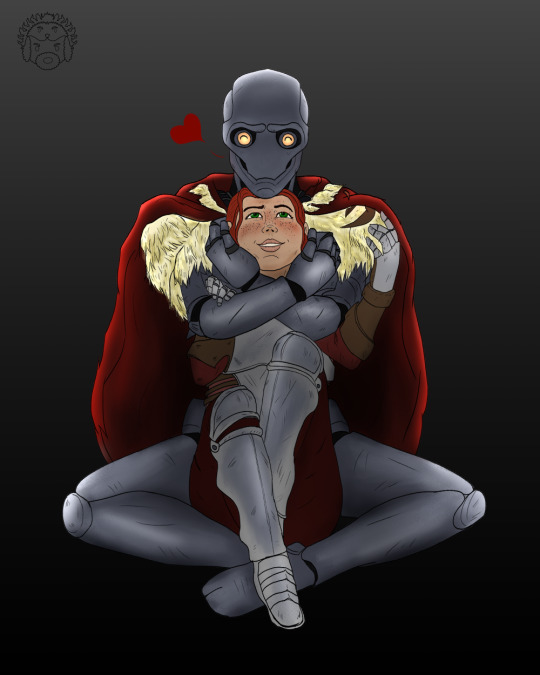
Because I love these two so much and on the other post you can't see them xD
RU0 and Dagna, aka the protagonists of The Warforged and her Dwarf by @natsora! This commission is also for Natsora! Our ace babies have their own story 🥺😭🥰💜💜💜
13 notes
·
View notes
Text
Musing on Autumn Floods and How It Reminds Us of To "Know Thyself"
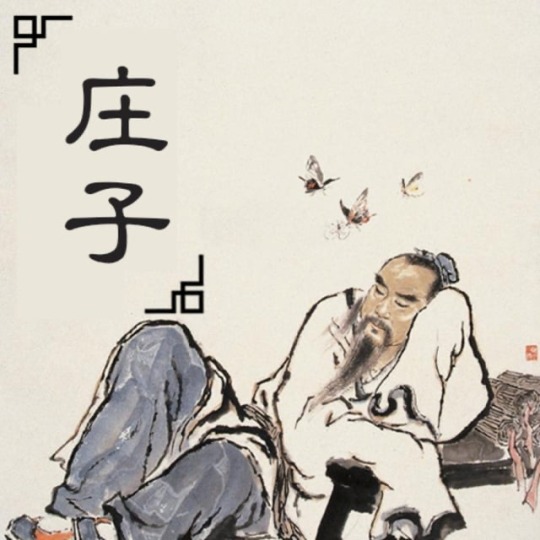
I want to talk about Chapter 17 of the Zhuangzi, Autumn Floods 秋水. Some things may be redundant from my previous posts on my musings of these outer and inner chapters of the Zhuangzi.
In the beginning of the chapter, we are introduced to two Chinese deities, Hebo, The Earl of the Yellow River, and Ruo, the God of the Northern Sea. Hebo traveled east to the Northern Sea, and upon gazing on the east and the endlessness of the Northern Sea, he is quite dazzled by the vastness of how far the water stretches eastward. Upon Hebo's perplexity, he addresses Ruo with the following proverb in 17.1.2: "though one has heard the Dao a hundred times, he still thinks no one is better than he -- which could be a saying meant exactly for me". And continues after the proverb as follows: "But now that I have seen your endless immensity with my own eyes, I realize that if I had not come to your gate I would have come to grief and been forever ridiculed by masters of the great method of the Dao."
This is to mean that Hebo, once believed himself to be the greatest of all bodies of water. That is, until he traveled east and gazed upon the vastness of the Northern Sea, which is why he exclaims in his amazement, "he still thinks no one is better than he -- which could be a saying meant exactly for me."
Guo Xiang expands on this by illuminating the fact that Hebo has realized just how small he actually is, in comparison with Ruo, The God of the Norther Sea. Upon this realization, he no longer feels that "no one is better than he." Hebo has realized that ones allotted capacity is something that is inherent, something bestowed by Heaven and cannot be altered.
Ruo then responds in 17.2.2, "Now that you have come out from between your banks to gaze upon the great sea and realized how miserably small you are, it will be possible to talk with you about the Great Ordering Principle."
For it is upon realizing, and thus accepting our innate capacities that we are able to even begin to converse on subjects such as Heaven and Earth, or the Dao. Understanding has been bestowed on Hebo and now he is fit to begin talking about this Great Ordering Principle. Though, even though both have recognized one (Ruo) is more vast and greater than the other (Hebo), Ruo still admits that even He, is just a tiny tree on that of a great mountain. He makes not much of himself because He too, realizes and understands his physical form, the Northern Sea, is too subordinate to Heaven and Earth just as the Yellow River is [17.2.3]. Guo Xiang beautifully makes the passage ever more clear. Just because Hebo has had this realization of His smallness in comparison to Ruo, does this mean The Yellow River is inferior or truly "smaller" than the Northern Sea? Absolutely not. In fact the very distinction between "small" and "great" is an arbitrary one. For both, Ruo (great) and Hebo (small), are the way they are because of their own unique allotted capacities bestowed by Heaven. Though Hebo is not wrong either in his realization of His size in comparison to Ruo. He is not wrong because there is no contention with his smallness in comparison to Ruo. And why should there be any contention? Guo Xiang states that only the deluded who are great, look down at and condemn the things that are smaller than it. And likewise for the deluded who are small -- they constantly envying those who are "greater" than them. So far, there is absolutely no contention or a yearn on Hebos part to be more "greater" or
"like" Ruo, just realization, understanding and an acceptance of things that are. The things that "are" is simply the natural distinctions Heaven makes, which it appears Hebo is well aware of this.
Hebo seems to understand this, yet he still faults because he still wishes to have a "playbook" for things that are great and for things that are small by asking Ruo this: "That being so, if I take Heaven and Earth to signify what is great and the tip of a tiny hair to signify what is small, would that do? [17.3]. Ruo responds in 17.4.1-4, "Not at all, for things have no end of different capacities; time never stops for them; fate for them in inconstant; and from beginning to end nothing ever stays the way it used to be."
This is all taken to mean to have a "playbook" for what is "great" and what is "small" is severely insufficient because of how unique each individual's allotted capacity truly is. Time never stops for the "great" or the "small." Fate is inescapable for things that belong to both categories, so how can there be any "playbook" for greatness or smallness? In 17.4.5-8 Ruo says this, "Therefore, one of great intelligence observes things both in terms of the distant and the commonplace, so though he might be small, he has no sense of being too little, or might be great but does not make much of himself, for such a one realizes that things have no end of different capacities and clearly understands present and past" What Ruo is suggesting here, I think, is that when we are presented with something, we need not think of the things we are being presented with as something "common" or "distant" of us. For what is "common" to me, is "distant" to another, and vice-versa. To view things as "common" or "distant" to us is a failure to recognize things as they truly are, which is, things just naturally are. We should leave the distinctions to Heaven's bidding, as suggested in 2.14.11-14 of the Zhuangzi, On Regarding All Things as Equals 齊物論.
I'm reminded of the post I made on Cook Ding and Lord Wenhui from Chapter 3 of the Zhuangzi, The Mastery of Nurturing Life 養生主. Cook Dings allotted capacity was to be a cook, he did not look at this fact as something shameful or something to be discouraged. Instead, Cook Ding blows away Lord Wenhui at his ability to cultivate such a Dao, given the position that Cook Ding is in: someone not of a lot of wealth or of high status. Cook Ding just hones his craft, a craft that he is naturally allotted to do. Cook Ding does not try to perceive the "greatness" of people of royalty from his position of that of just a cook. He just takes what has been allotted to him by the blessing of Heaven, and makes the most of it. In doing so, he astonished Lord Wenhui at his mastery of cultivating the inarticulate Dao. Which is why in 17.6.1, Ruo states: "To perceive the great with the minute won't get all of it; to perceive the minute with the great won't get it clearly." For if the "great" and the "minute" differ, which they most certainly do, what actually distinguishes them cannot be the same. In order to truly to understand what distinguishes the "minute" from the "great," we must enter into the place that has no words or thoughts, according to Guo Xiang [17.6.5].
The "great" does not set out to be any more "greater" than what they are naturally allotted; nor does the "small" set out to be smaller or greater than it actually is. In 17.7.15-18, Ruo states that, "He knows (the sage) that right can't be divided from wrong, that the small and the great can't demarcate the one from the other. I have heard it said, 'The man of the Dao is unheralded; perfect virtue is unsuccessful; and the great one has no self.'"
We must cast these human noted distinctions away from our thoughts, and not divide things ourselves. When we divide things up ourselves, we fail to let Heaven do its job, which is to naturally make distinctions between things, based upon each things allotted capacity.
Earl of the Yellow River, Hebo, then inquires more about how distinctions are brought about between the great and the small, the noble and the base [17.8]. To which Northern Sea Ruo replies in 17.9.1, "From the view point of the Dao, there is nothing either noble or base about things." This is because each thing, whether noble or base, great or small, each thing is self sufficient unto itself. Which is why in the viewpoint of the Sage or of the Dao itself, these distinctions Hebo keeps trying to purpose, simply do not exist.
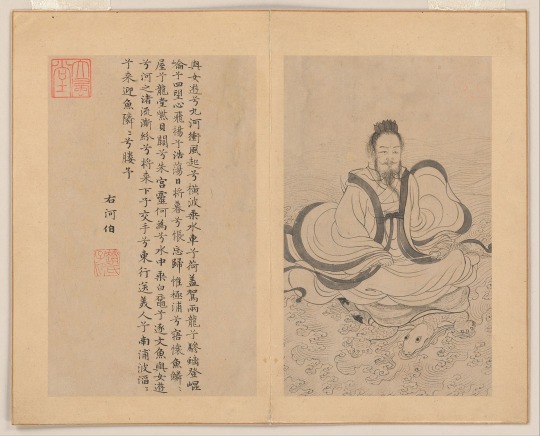
For if something is great or noble, because the thing itself deems itself great or noble, then none of the myriad of things would fail to be great or noble, and the same is true about the base and the small. If one deems themselves small, then none of the myriad of things would fail to be small. See the problem here now in making distinctions as arbitrary as these? In the viewpoint of the Dao, we should consider Heaven and Earth to be as small as grain of rice, and that the tip of an autumn hair to be as large as the mountain. All these distinctions are relative and nothing is either great or small, when looking at things from the view point of the Dao [17.9.4].
We truly need to regard all things as equal as suggested in Chapter 2 of the Zhuangzi. All things are equal in regards that each things lives according to their natural principle. This is a thing we can observe in the animal kingdom. For the horse does not differ from the ant just because the horse cannot create colonies, or because the ant cannot provide transportation. These two animals are perfectly equal in regards to that they both spontaneously act in response to their own allotted capacities. It is natural for the ant to create colonies out of dirt, and it is natural for the horse to provide transportation. Why would we call an ant inferior because it cannot provide the things a horse can? Or likewise, why would we call the horse inferior because it cannot create such intricate colonies for it's fellow horses? We don't use these arbitrary distinctions when it comes to the animals, so why would we use them in regards to each other [17.10.2].
What we disagree with or deem as "wrong" is just things that disturb our harmony, and are disadvantageous. And likewise, what suits us and what we deem as "right" are things that harmonize us and what is beneficiary to us. Since what suits me and harmonizes my Hun and Po, will be uniquely different to someone else, this is why Guo Xiang states in 17.10.3, that there is no guiding principle, or "playbook," for what is "right" or "wrong."
"If I accept something as "right," this does not allow another to take it as "wrong," which is to know only one's own view and not appreciate the other's. This being the case, if one looks at things in terms of the Dao, nothing ever fails to be suitable. So if one entrusts things to the potter's wheel of Heaven and is comfortable to follow two such paths at once, no matter how different ways are and no matter how different things are, being the same for him all are beneficial." [17.10.3]
To reject what is "wrong" and to be guided by "order" and reject the "disordered" is according to Master Zhuang, is as if we are being guided by Heaven and to deny Earth, or it is like denying our yang, while being strictly guided by our yin. This is surely impossible to do. Yin and Yang live in opposition in one another, they generate each other. This is also true for the "right" and the "wrong," the "great" and the "small" and all the myriad of distinctions we make as humans [17.10.4].
Hebo is still puzzled; he still wishes for a playbook on "what to do," and "what not to do." For this is the same thing as asking "what is right," or "what is wrong" [17.11]. Ruo encourages Hebo to hold not onto fixed goals such as "what to do," and "what not to do, and encourages the great God of the Yellow River to be radically impartial.
"Hold not to a fixed goal, for this greatly obstructs your way to the Dao. What is 'little,' what 'much!' These are just names for amounts available, the one superseded by the other. Hold not to one course of action, for this puts you at odds with the Dao. Be stern as a ruler should be with his state, one whose virtue is exercised impartially." [17.12.2-5].
For Hebo is still failing to recognize that he must be flexible in his approaches to dualities, and must not embark on the path of "what is" or "what is not." He should just simply remain impartial to such arbitrary distinctions. For if we treat all the myriad of folk to be equally as one, none of the myriad of folk fail to be self-sufficient. When everything is regarded as one or equal, things never fail to spontaneously meet their own unique allotted capacities. "What is" gives way to "what is not" and vice-versa. Thus, they are equally dependent on one another, and furthermore, are equals. Things never stand still as we might like to think. In 17.12.16 & 17.12.18, we are told as follows, "Growth and decay, waxing and waning, when one ends the other begins. No action fails to produce change, no time fails to involve transition." So to try and make things stand still by deeming things "are" and "are not" will inevitably, and always fail. Ruo's final suggestion on this particular matter, is to leave "what should I do" and "what should I not do" alone and just leave them to self transform, as this would be to be in step with Heaven [17.12.19].
If Hebo is being told to discard "what should I do" and "what should I not do", he then inquires, "...then what is of value in the Dao?" [17.13]. To which Ruo responds with, "One who comprehends the Dao must have insight into principle; one who has insight into principle must be clear about incipiency; one who is clear about incipiency shall not let himself be harmed by things [17.14.1]. This is to mean that when one has merged arcanely with all things, discarded divisions and distinctions such as "safety" and "danger" nothing harms the one who is in step with the Dao. Though Ruo/Master Zhuang is clear to point out that doing away with such distinctions does not mean he makes light of the dangerous and the safe. All this means is that the sage remains compeletly serene when things come about, whether that be the things that are "safe" or things that are "dangerous" [17.14.2-4]. The sage is therefore, "content with either misfortune or fortune, and is cautious about whether to advance or retreat [17.14.5-6].
The rest of the chapter just gives us more examples and mythological stories of why these arbitrary distinctions we make have no room when it comes to being instep with the inarticulate Dao. Some key takeaways here is that we must know ourselves and our place in this big vast universe — recognize how small we are, yet not be discouraged about such facts. For it was when Hebo realized just how small he was that he was then able to embark on such a journey of the Dao. We should also not exceed what we are naturally allotted to in life. We are all gifted a certain level of intelligence that can cannot be superseded. Sounds a little bleak, but quite the opposite is the case if we take into account the previous chapter, "Mending One's Original Nature or Correcting The Nature 繕性" and my post on it. I also think this chapter tells us to discover who we are, and what we truly are allotted in this life. Not so different from the concept of "know thyself" that is rung in more western schools of mysticism and thought, such as Hermeticism and Sufism. For when we learn to "know ourselves" our limits are thus transformed into endless unlimitedness, which is why I think it's fitting to conclude this post with a quote from chapter 17 one last time:
Neither north nor south exists for him As unobstructed in all directions into the unfathomable. Neither east nor west exist for him As he starts from arcane obscurity To return on the great thoroughfare. [17.29.2].
2 notes
·
View notes
Text
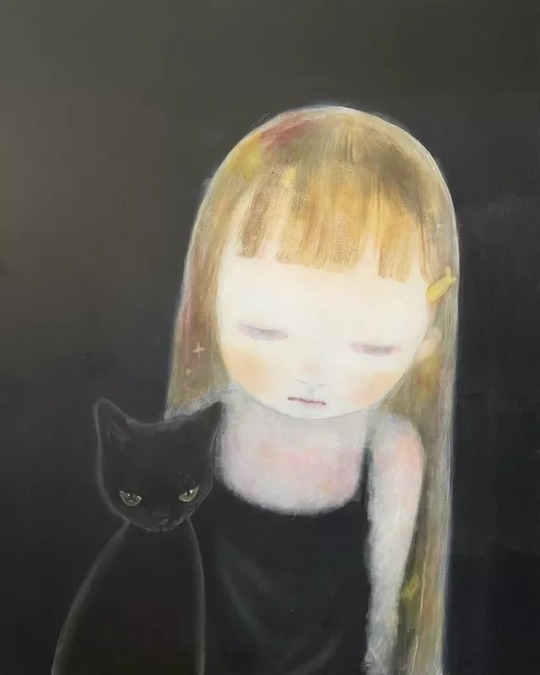
Wu Ruo Hsin: Black Cat II (2022)
3K notes
·
View notes
Text
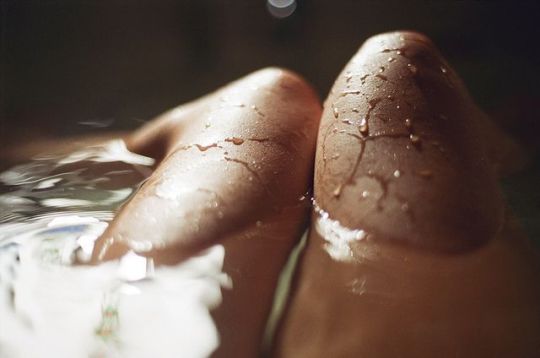
#weheartit#nature#cottagecore#gorgeous#forest#serene#life#vibes#water#spring water#bath#outside bath#droplets#water aesthetic#ruo#leg#legs#girl aesthetic
0 notes
Text
A Siren is singing.
234 notes
·
View notes
Text
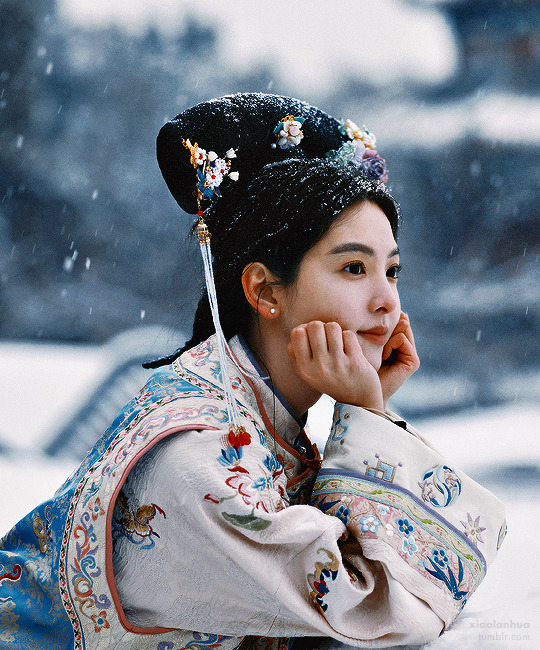
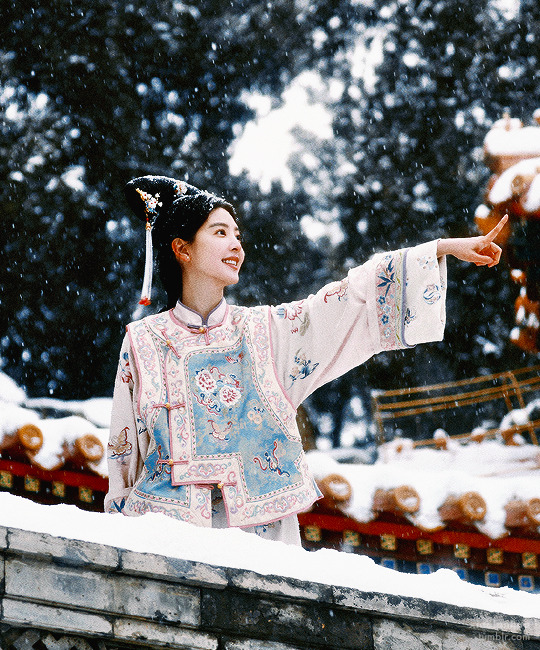
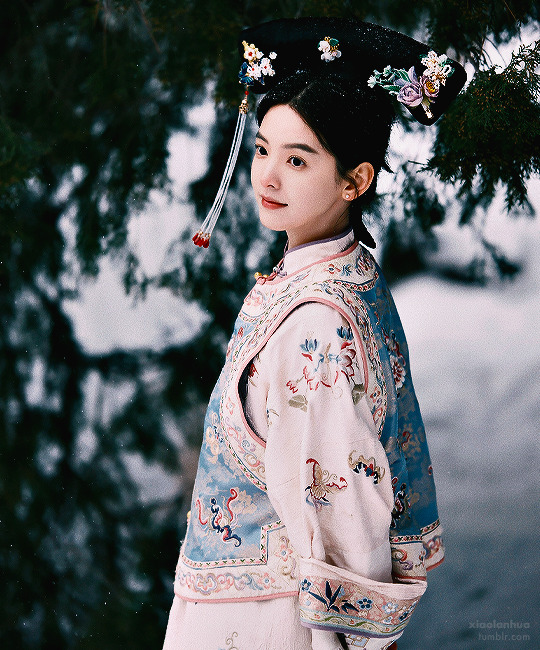
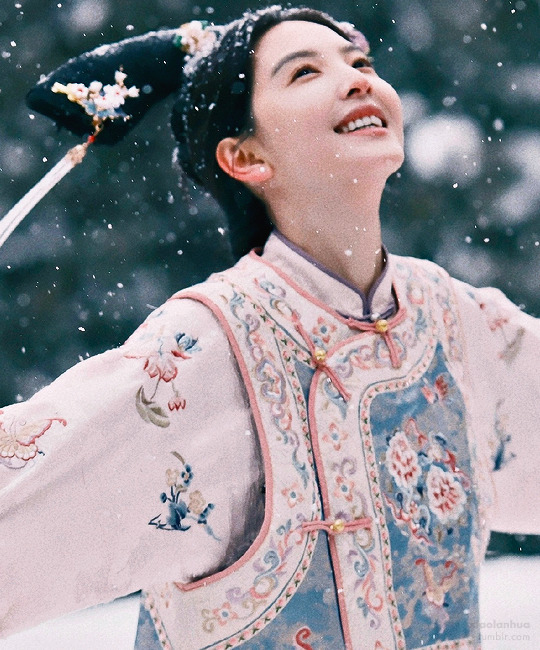
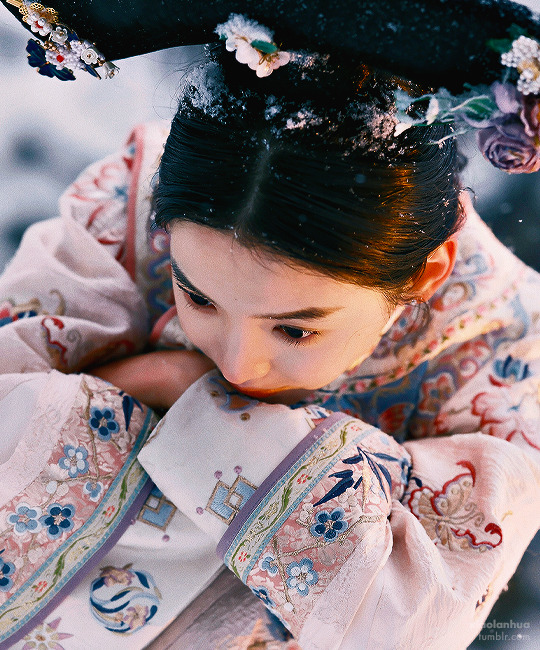
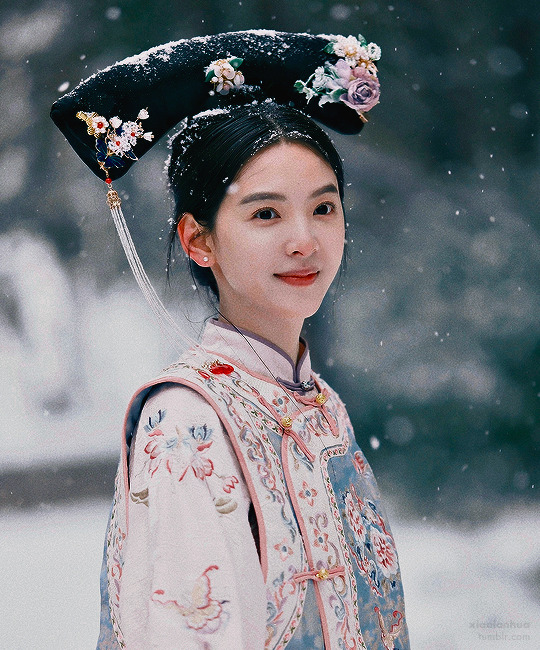
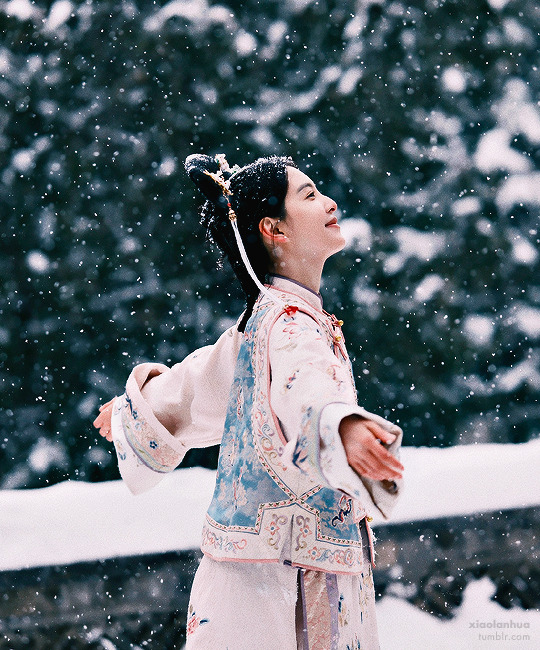
ZHANG RUO NAN
Studio update for the new year
#zhang ruonan#zhang ruo nan#cdramaedit#chinese actress#cactress#chinese fashion#fashion#my edit#*#chineseartistsinc#userdramas#asiandramanet#hanfu
247 notes
·
View notes
Text
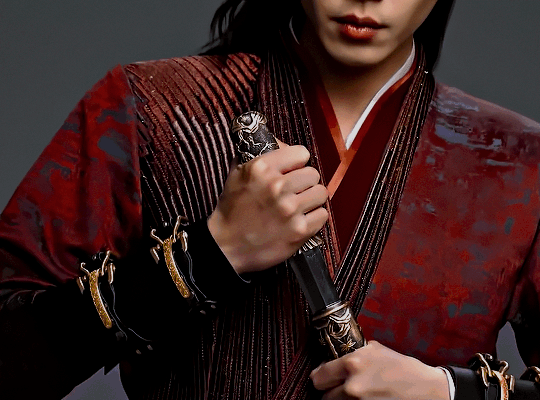


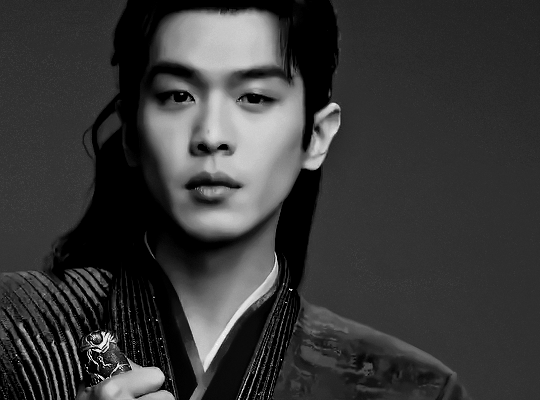
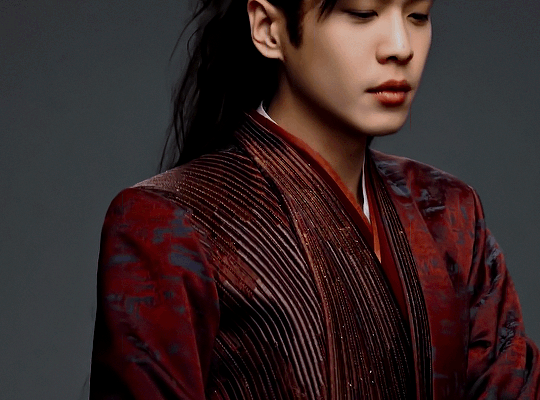
ZHANG RUOYUN as FAN XIAN || BTS of the poster shooting for JOY OF LIFE 2
#joy of life#joy of life 2#zhang ruoyun#qing yu nian#cdramasource#cdrama#cdramaedit#asiandramasource#chinese actors#庆余年#joy of life s2#fan xian#庆余年 第二季#zhang ruo yun#ellisgifs#HE'S COMING HOMEEEE#(* at some point within the next year. hopefully.)#but filming is DONE!!!
268 notes
·
View notes
Text
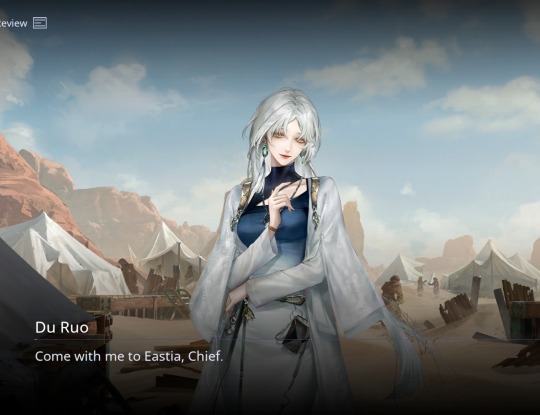
me: GOODBYE, DISCITY!
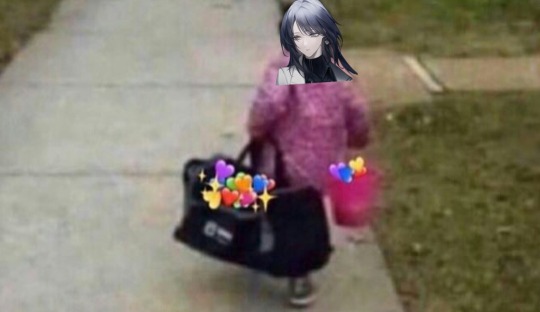
88 notes
·
View notes
Text
She is so boated
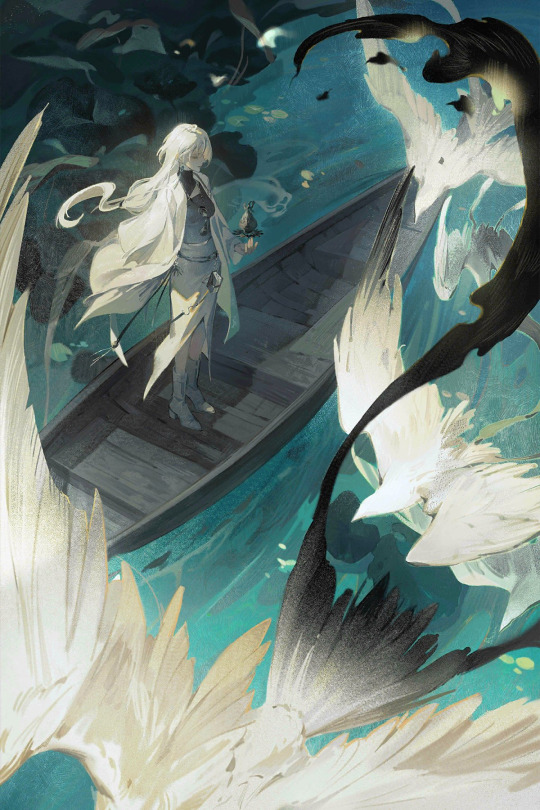
126 notes
·
View notes
Text
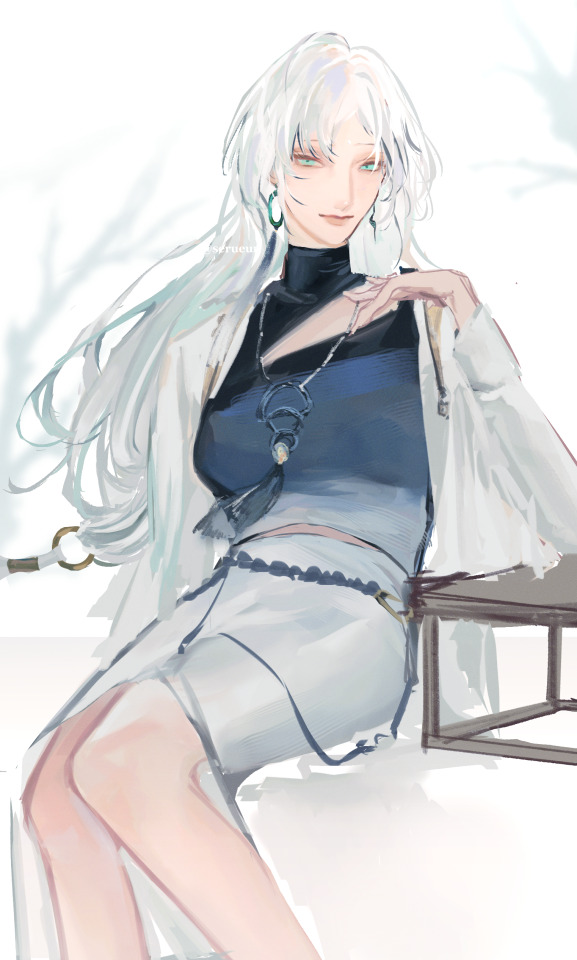
96 notes
·
View notes
Text
I think having Du Ruo and Shalom in a threesome together would be amazing…
I would really like for them to meet because they seem like two women who would get along nicely as they fuck you between them. Idk, Du Ruo seems freaky enough to get along with someone as freaky as Shalom. The two eerily calm women…
Shalom: Nice weather we’re having, hm?
Du Ruo: Indeed. Though I expect we will be having a light drizzle soon.
Reader: *currently being fingered by both women so hard she almost squirts*
111 notes
·
View notes
Text
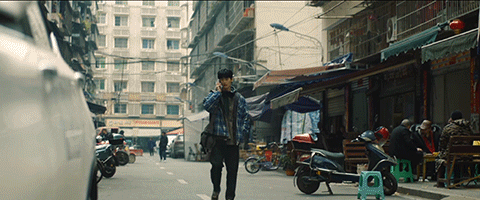
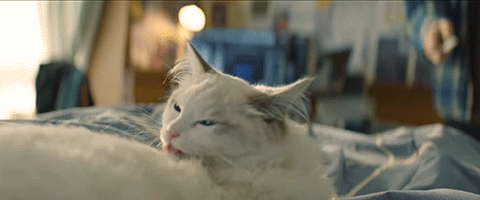
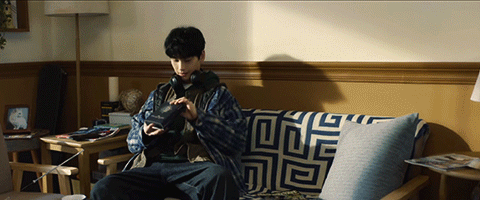

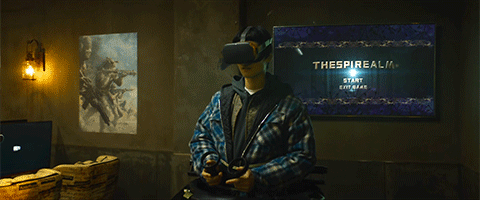
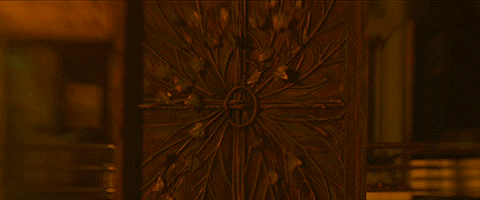

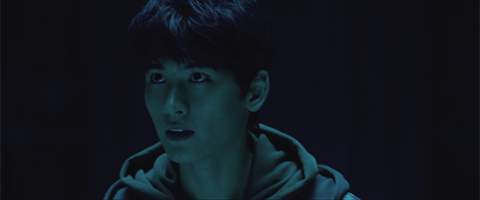
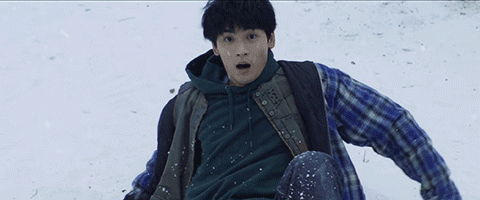
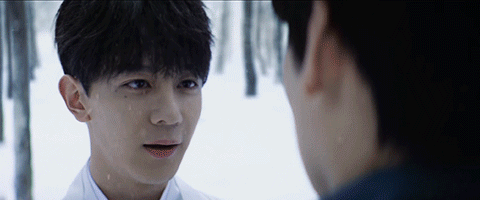
The Spirealm | S01E01
Chinese Drama - 2024, 78 episodes
Episodes | Viki | YouTube | iQIYI | WeTV | Tencent | Youku | Catalogue
~~ Adapted from the web novel "Kaleidoscope of Death" (死亡万花筒) by Xi Zi Xu (西子绪).
This is one of my favourite novels. Half-way through watching this but for me the characters have come alive, even if I would love it to be more horror and like mature 18+, I'll take this adaptation and enjoy it. Also 78 episodes, this will take a little while S:
#Drama: The Spirealm#CDrama#Mystery#Horror#Fantasy#Censored Romance#Partners in Crime#致命游戏#Kaleidoscope of Death#Xia Zhi Guang#Huang Jun Jie#Lui Ruo Gu#Liu Xiao Bei#Yan Zi Xian#Chinese Drama - 2024#Drama: 2024#Censored Adaptation of Same-sex Original Work
92 notes
·
View notes
